What will Philip Hammond reveal about Theresa May's Brexit plans?
- Published
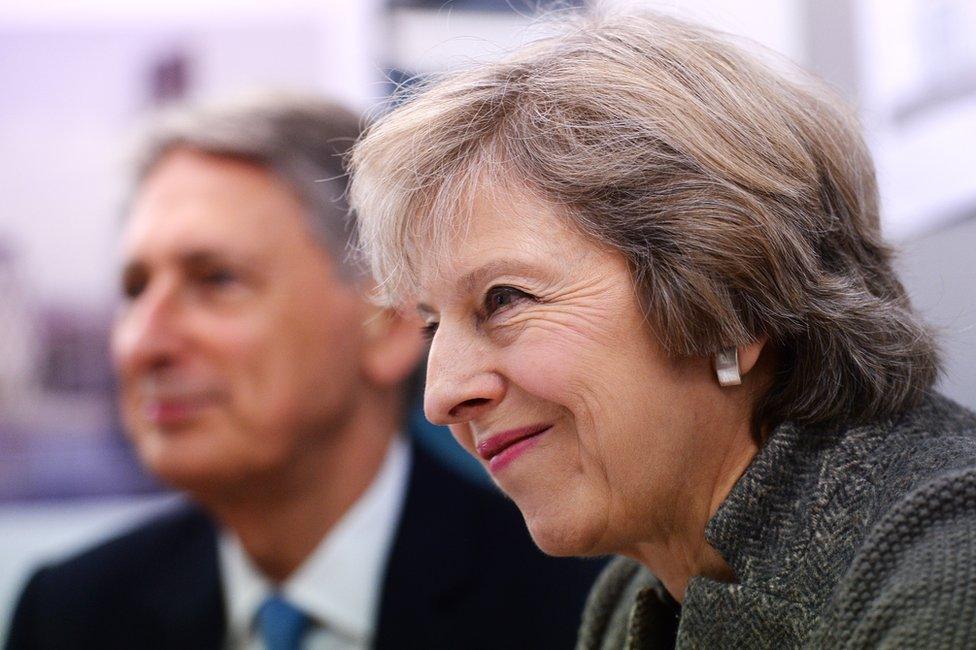
The chancellor's first Autumn Statement may reveal the prime minister's real Brexit strategy
You may not have noticed it yet, but next week's Autumn Statement will be a big test of the prime minister's seriousness.
Theresa May is making an extraordinary claim - to be the Western leader who gets the zeitgeist, who has the answers others are too timid to grasp, without being so headstrong that she threatens the whole system of world capitalism.
The overarching question about the chancellor's first major economic pronouncement will be "What does it say about Brexit?".
This is entirely right and proper. Philip Hammond wouldn't be in charge of the UK economy without that vote - George Osborne would still be in post.
The direction Mr Hammond takes will depend on whether he thinks Britain is more likely to boom or bust outside the European Union.
In some quarters, he is already castigated for not sticking to a "happy clappy" script.
Sensible people agree Brexit is an economic leap in the dark, destination unknown. But to some, acknowledging this is akin to heresy.
Our leap, they insist, will be on to a rainbow from where we will slide gently to a pot of gold.
If Mr Hammond's economic analysis suggests it might be best to brace for a bumpy landing on the rocks below - just in case - some will regard that as defeatist whingeing.
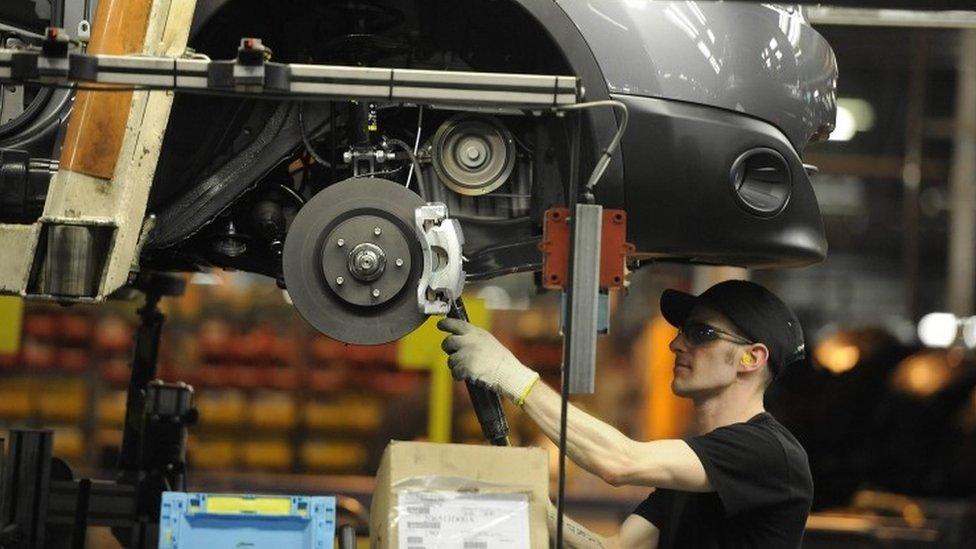
Nissan said the government had offered "support and assurances" over its post-Brexit future
We need to look out for growth and tax forecasts and measures to buttress a faltering economy, but tone and presentation will be important too.
The shock absorbers he does - or does not - put in place will tell us something about this government's true perception of Brexit, but its ambitions to reshape the British economy are far more significant.
It should tell us more about the intention and beliefs of the second most intriguing politician in the world - Mrs May. I would not have dreamed of writing that a few months ago, but as she herself said recently, we live in "a world transformed".
Of course what she does as prime minister at a critical time for our country is important, but it is much more than that.
She appears to be putting herself forward as the first leader in the world who will respond to a wave of populist discontent she neither encouraged nor summoned.
She makes clear her job is to ameliorate a mood that is sweeping the West. Her mission is nothing less than saving globalisation and free trade from themselves.
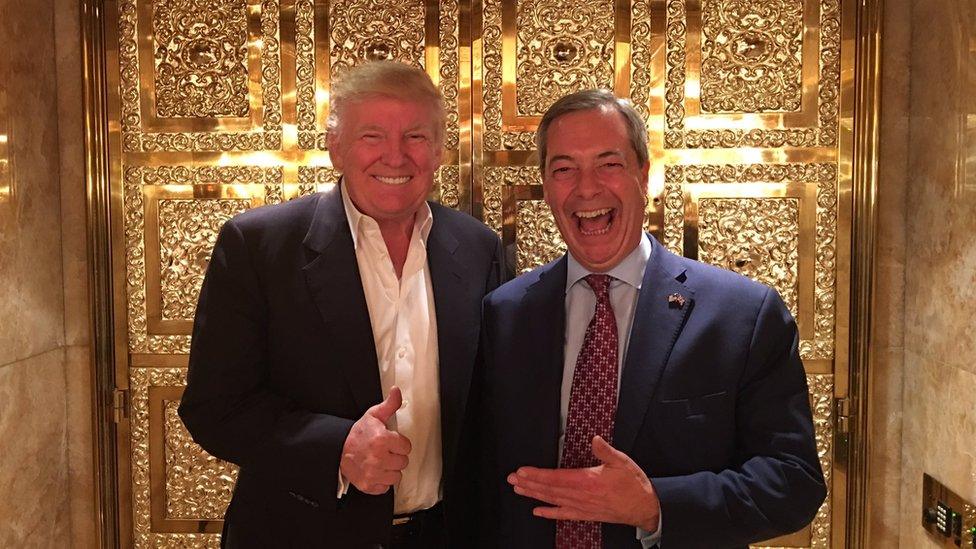
Do President-elect Trump and Nigel Farage both represent the "left behinds"?
We are familiar with the terms "centre right" or "centre left". She seems to want "centre populism". This may of course turn out to be traditional conservatism reheated in the rhetoric de jour, or it might be a wholehearted embrace of the radical ideas of the new hard right.
Last week I wrote about the similarities between Donald Trump's victory and Brexit. There are many differences between the leader of the UK and the next leader of the US but one in particular is critical.
Mr Trump not only skilfully surfed the wave of populism, he summoned the waters, encouraged the swell and used its gathering force to propel himself into power.
Here, by contrast, Mrs May was a mere bystander as the flood smashed the existing political order to matchsticks, the would-be surfers Boris Johnson and Michael Gove were spectacularly wiped out by the waves and David Cameron and Mr Osborne turned into so much flotsam and jetsam.
She was picked up and swept along in the tumult and deposited, almost accidently, in a high place, dryish and in charge.
Theresa May: "A year ago few of us would have predicted the events ahead"
Mrs May could have been briskly business-like and insisted the only instruction from the referendum was the simple one on the ballot paper - to leave the EU. "Brexit means Brexit" to coin a phrase.
But Mrs May agrees with the academics and journalists who say it means far more, that voters were expressing a wider mood of discontent. In her recent speech to the Lord Mayor's banquet she repeated the central tenets of her party conference speech.
Brexit was a message about immigration and anger at a rich elite, some of whom ignore the rules others must obey.
But above all, she said, politicians and business people had to accept that "globalisation in its current form has left too many people behind".
And "we can do much more to ensure the prosperity [globalisation and free trade] provide is shared by all".
Read this out of context and you might guess she is attempting to out-Corbyn Jeremy.
Repeating "prosperity shared by all" twice in her speech might lead you to believe that "Red Phil" will be ordered to use the Autumn Statement to introduce a wealth tax of 90% on incomes of more than £200,000 and big corporate profits, and use the proceeds to treble the minimum wage, quadruple pensions and add a big fat nought to all benefits.
This is probably not Mrs May's way of "sharing prosperity". So what will she do?
Mr Trump wants to bring back jobs by introducing tariffs.
That's not Mrs May's way either. Indeed, she wants to be "the strongest global advocate for free markets and free trade".
So what could bring "the left behinds" (TLBs) right up front? Her answer? A new industrial strategy., external The test of Mrs May's seriousness will be if this is the centrepiece of the Autumn Statement.
Autumn Statement: The view from Scunthorpe
The shimmering outlines of what an industrial strategy might be are just about visible - "backing up the strengths" of great universities, dynamic businesses, creating "conditions where winners can emerge" and "developing untapped potential".
It's still rather hazy. To convince, Mr Hammond has to come up with spending promises and tax incentives to make this feel like new policy which will substantially change lives.
There are some signs "the left behinds" may lose out again to a newer group which has caught the PM's eye - the so-called "Just about managing", or Jams. The proposed help for them seems to be more in the nature of headline-grabbing gimmicks than a real change in policy.
If this is all talk, Mrs May is playing a dangerous game with the public mood.
She must know she does not have much leeway. Because the President-elect was so brutally frank about his extreme prescriptions on the road to power, he can afford to tone it down a bit now. Donnie Darkmouth can, to an extent, morph into Temperate Trump.
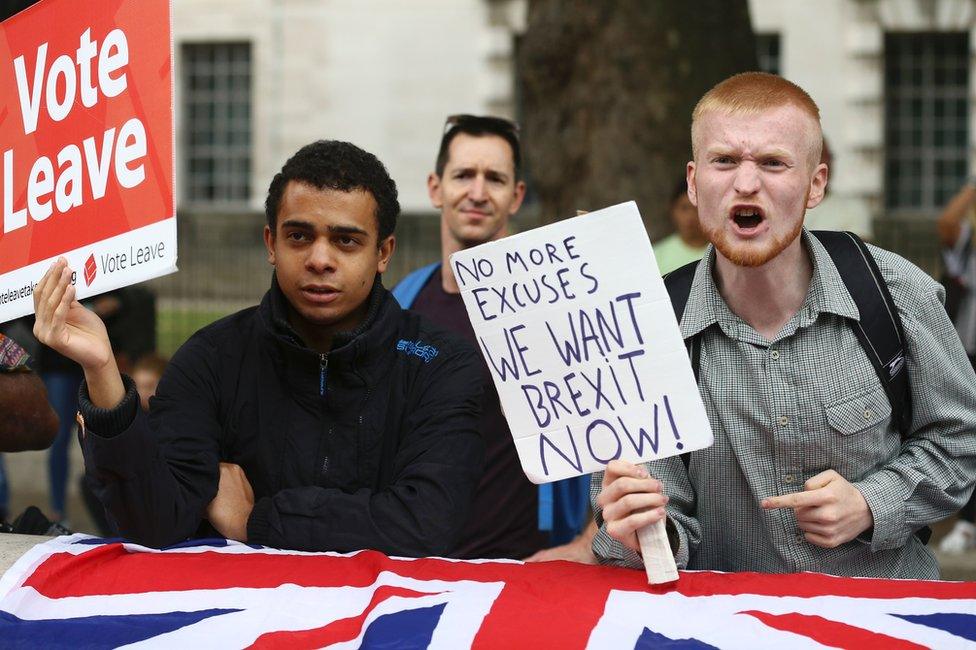
But Mrs May did not originally champion or encourage the people who put her in power.
She is calculating what they want, not expressing a shared fury, which means she risks sounding too shrill for those who do not share her prescription, while not doing enough to meet TLB or Jam concerns.
There is a danger too in falling in love with what is fast becoming an overwhelming narrative.
Whilst "the left behinds" is a useful catch-all, I prefer the idea of "the disconnect". Politicians will not be serving the national interest if they get the idea that courting former industrial workers undergoing a crisis of identity is all that matters.
This government has only revealed itself in fits and starts: long on talk, short on policy.
Next week we might see if it will put our money where its mouth is.
- Published17 November 2016
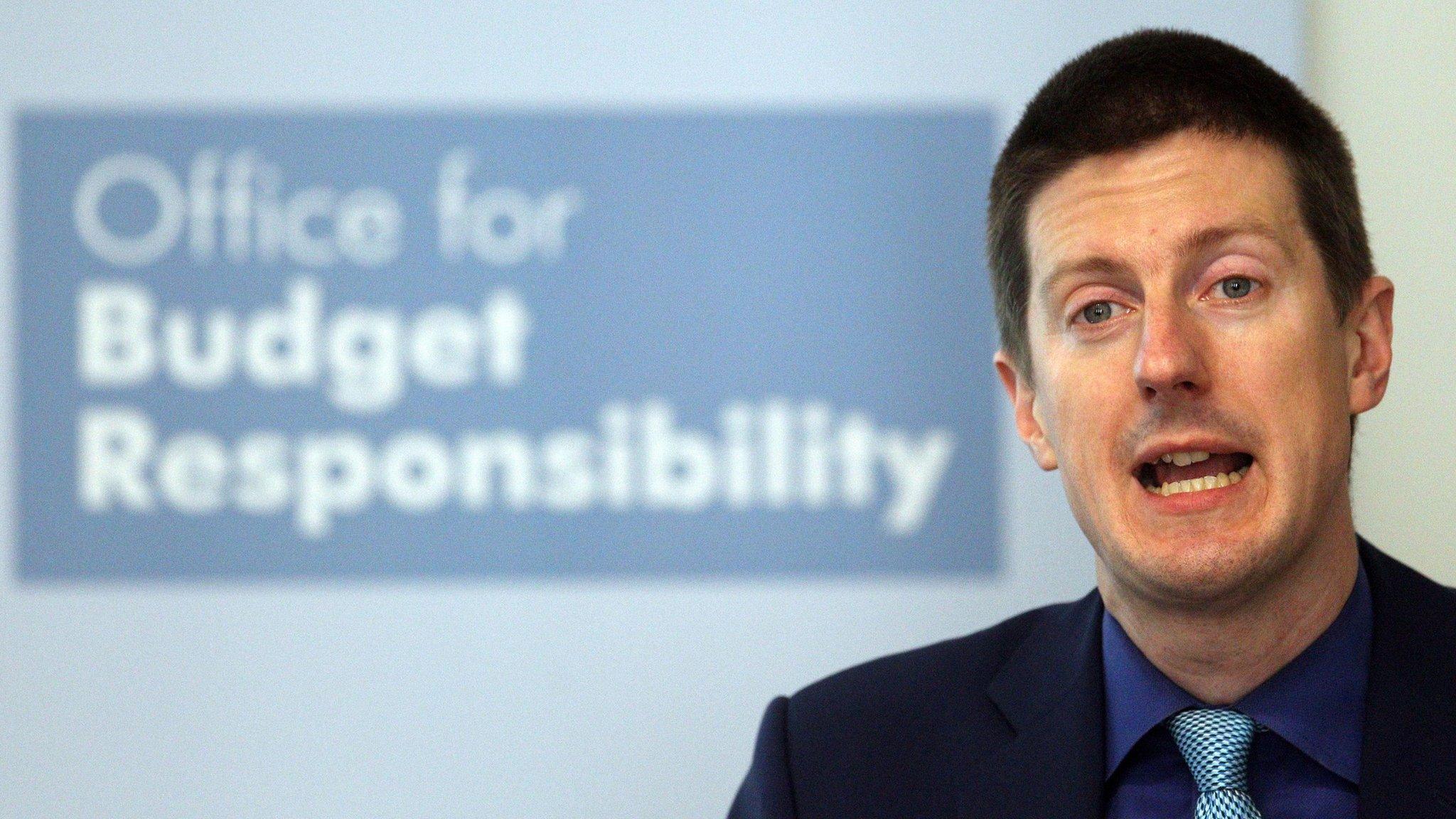
- Published16 November 2016
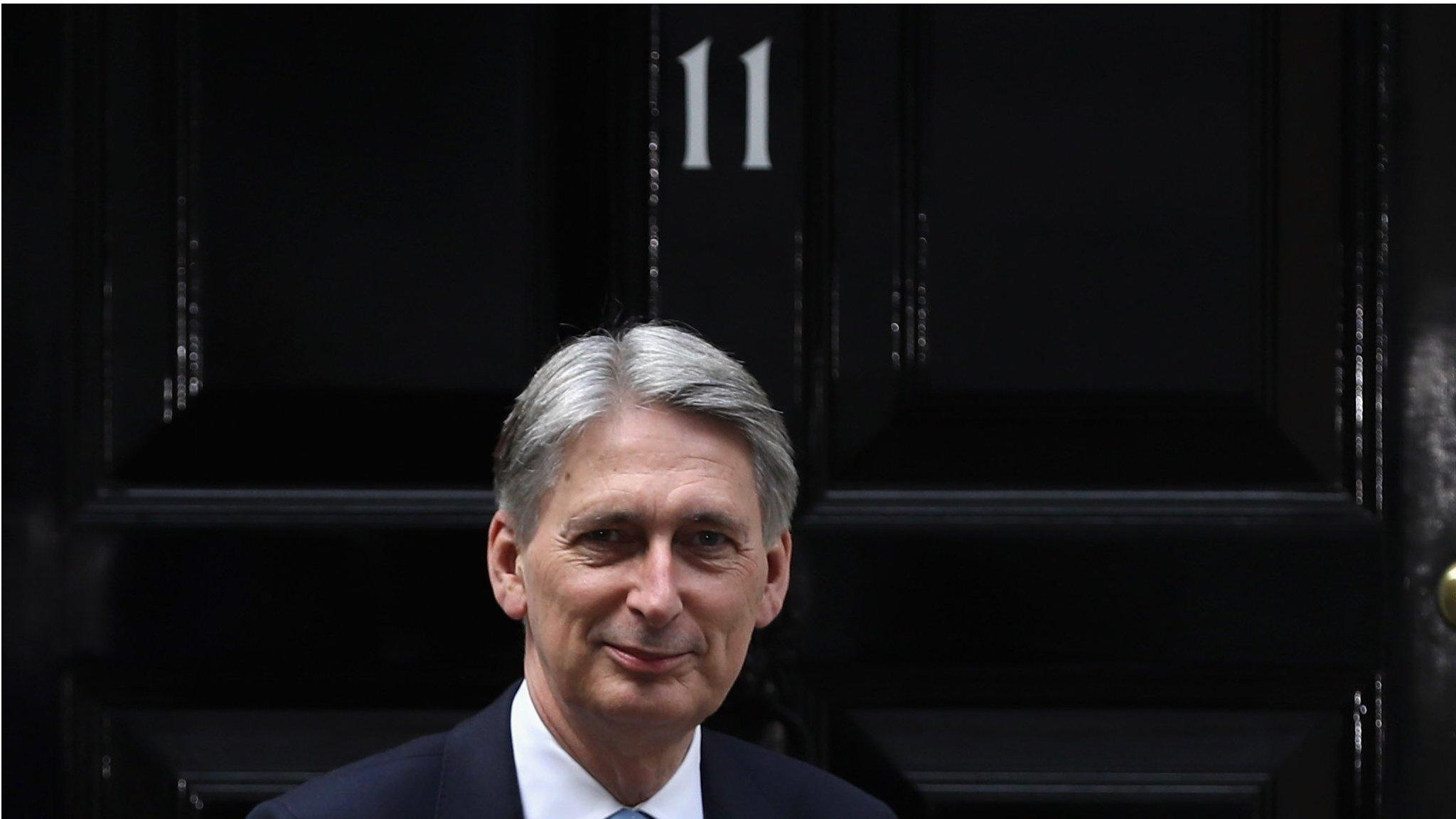
- Published14 November 2016
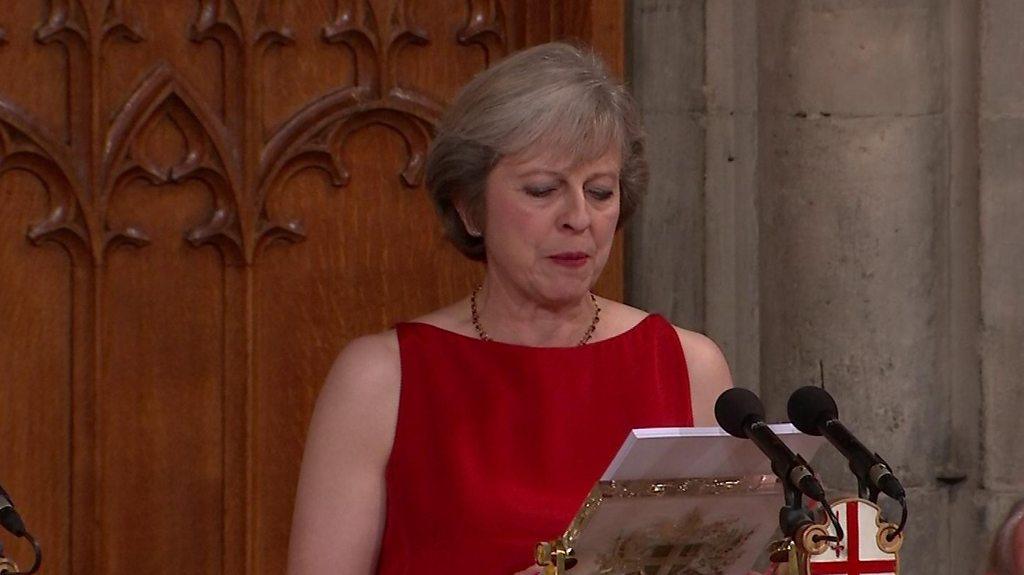
- Published14 November 2016
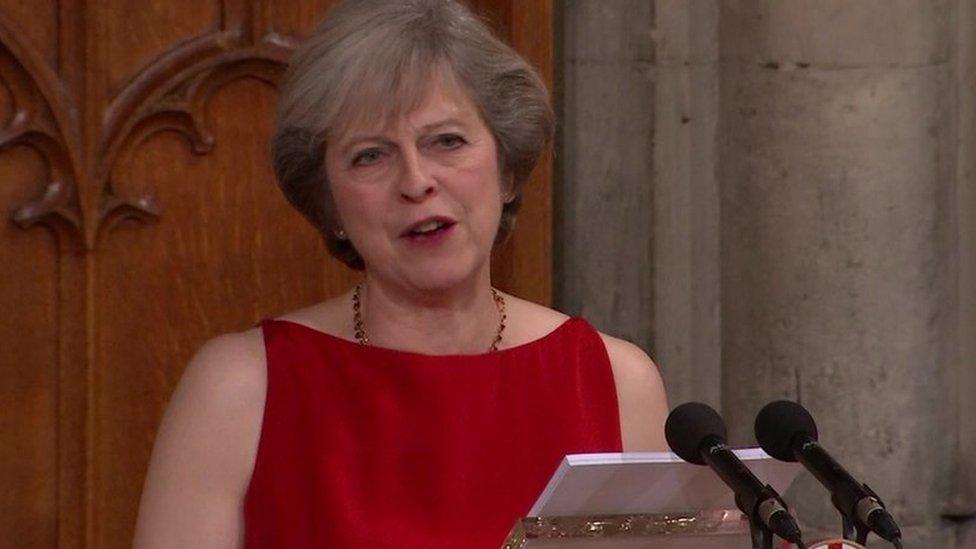
- Published8 November 2016